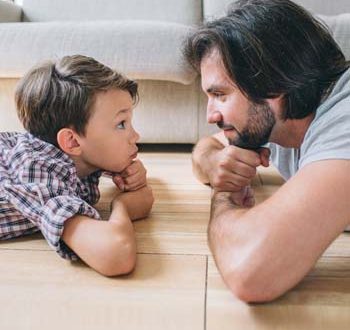
A survey of over one thousand young people aged 14 to 24 has found that Instagram is the worst social media site in terms of its impact on the mental health of young people. The #StatusofMind survey conducted by the Royal Society for Public Health, found the photo-sharing app negatively impacted on people’s body image, sleep and fear of missing out. “The platforms that are supposed to help young people connect with each other may actually be fueling a mental health crisis,” said the Royal Society for Public Health report. So with such stark findings how can you ensure that your child stays safe and maintains a healthy sense of self esteem when using social networking apps like Instagram?
It is really important to regularly reinforce the fact that images and content shared via social media is literally just a snapshot of people’s lives. No matter how well your child feels they know someone, this is just one image from an entire day. Even adults can be affected by what we see shared on social media, for children and particularly teenagers these affects can be even more magnified. The importance of distinguishing between the real world and the ‘virtual’ world cannot be underestimated. Linked to this is the phenomenon of FOMO – Fear of Missing Out, specifically relating to the use of social media. This means that teens in particular feel that if they are not constantly online, responding to, or engaged in, messaging or sharing new content that they are, missing out. To a certain extent FOMO can be expected as a normal stage of development and can be related to a number of areas of their lives, but where it relates to social networking, it can of course be linked to excessive internet use. Encouraging the creation of a healthy balance in the use of social media along with a having a healthy relationship with technology and digital devices is very important in helping your child to combat feelings associated with Fear of Missing Out.
Sleep is incredibly important for all of us, but particularly for young people If their sleep is being impacted by their use of digital devices, this certainly needs to be addressed. In essence, technology has no place in the bedroom. Remind your child of this regularly. It is important that the whole family see the bedrooms as place of rest and ultimately sleep. An increasing number of experts in the area of sleep say that the most important part of ensuring a good night’s sleep is that your brain and your body associate the bedroom with sleep. Light or the lack of it, is also crucial for restful sleep. It is essential that the room your child is sleeping in is dark, with definitely no lights from screens. The blue light omitted from screens affects the level of melatonin in the brain, essentially waking the user of the screen up as opposed to helping them to fall asleep. A wind down time of at least 1 hour of no screens before going to bed is a great idea for all members of the family.
Social networking apps, such as Instagram are not likely to decrease in popularity any time soon. In helping your child to develop a realistic perspective on the use of these apps you are giving them a great foundation for the future.
Explore Zeeko’s Home Page to discover our mission on the About Us Page, innovative Phone Blocking System, and engaging Phoenix Quest 10 programme. We provide Internet Safety Seminars, the Zeeko Report Card, and the Magical Leaders Choose Country initiative, alongside insights from our Digital Trend Report. Stay connected with us on Facebook and Instagram for updates.

